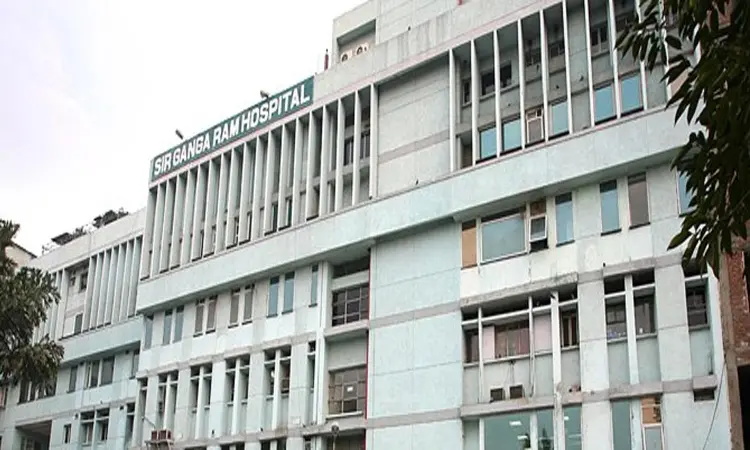- Home
- Medical news & Guidelines
- Anesthesiology
- Cardiology and CTVS
- Critical Care
- Dentistry
- Dermatology
- Diabetes and Endocrinology
- ENT
- Gastroenterology
- Medicine
- Nephrology
- Neurology
- Obstretics-Gynaecology
- Oncology
- Ophthalmology
- Orthopaedics
- Pediatrics-Neonatology
- Psychiatry
- Pulmonology
- Radiology
- Surgery
- Urology
- Laboratory Medicine
- Diet
- Nursing
- Paramedical
- Physiotherapy
- Health news
- Fact Check
- Bone Health Fact Check
- Brain Health Fact Check
- Cancer Related Fact Check
- Child Care Fact Check
- Dental and oral health fact check
- Diabetes and metabolic health fact check
- Diet and Nutrition Fact Check
- Eye and ENT Care Fact Check
- Fitness fact check
- Gut health fact check
- Heart health fact check
- Kidney health fact check
- Medical education fact check
- Men's health fact check
- Respiratory fact check
- Skin and hair care fact check
- Vaccine and Immunization fact check
- Women's health fact check
- AYUSH
- State News
- Andaman and Nicobar Islands
- Andhra Pradesh
- Arunachal Pradesh
- Assam
- Bihar
- Chandigarh
- Chattisgarh
- Dadra and Nagar Haveli
- Daman and Diu
- Delhi
- Goa
- Gujarat
- Haryana
- Himachal Pradesh
- Jammu & Kashmir
- Jharkhand
- Karnataka
- Kerala
- Ladakh
- Lakshadweep
- Madhya Pradesh
- Maharashtra
- Manipur
- Meghalaya
- Mizoram
- Nagaland
- Odisha
- Puducherry
- Punjab
- Rajasthan
- Sikkim
- Tamil Nadu
- Telangana
- Tripura
- Uttar Pradesh
- Uttrakhand
- West Bengal
- Medical Education
- Industry
Sir Ganga Ram doctors perform unique cryoablation procedure to treat gall bladder cancer

New Delhi: A 55-year-old woman suffering from gall bladder cancer and deemed unfit for surgery underwent cryoablation, a new form of minimally invasive treatment that kills carcinogenic cells with extremely cold gases, at a private hospital here.
The procedure was performed by the Department of Interventional Radiology at Sir Ganga Ram Hospital, which claimed it to be a “first-of-its-kind procedure” in north India for cancer treatment.
Explaining the procedure, Ajit Yadav, a consultant at the Department of Interventional Radiology, said, “Cryoablation works on the principle of the ‘freeze-thaw-freeze’ cycle. A thin needle called a cryoprobe is placed directly into the cancerous area under ultrasound or CT scan guidance.” “The cryoprobe circulates extremely cold gas like liquid nitrogen to freeze and kill cancer cells. Then the tissue is allowed to thaw. Finally, another cycle of freezing is performed. The time required depends on the size, location, and type of tumour,” he said.
According to doctors, cryoablation can also be used for the management of other types of cancers, including in the lungs, kidneys, bones, liver and breasts in general.
The procedure takes about one and a half to two hours, they said.
“It is safe and the risks involved are generally lower than in surgery. An additional advantage of cryoablation is that it can be repeated if required,” according to a statement from Sir Ganga Ram Hospital.
“For the first time in North India, we chose cryoablation for this patient as the cancer was relatively large and very close to liver vessels and other vital structures. Cryoablation ensured complete ablation of the cancer which could also be visualized in the form of an ice ball on a CT scan,” said Arun Gupta, the chairperson and senior consultant at the Department of Interventional Radiology.
Also Read:68 years of Delhi's Gangaram Hospital, Foundation Day celebrations held
Kajal Rajput joined Medical Dialogues as an Correspondent for the Latest Health News Section in 2019. She holds a Bachelor's degree in Arts from University of Delhi. She manly covers all the updates in health news, hospitals, doctors news, government policies and Health Ministry. She can be contacted at editorial@medicaldialogues.in Contact no. 011-43720751


